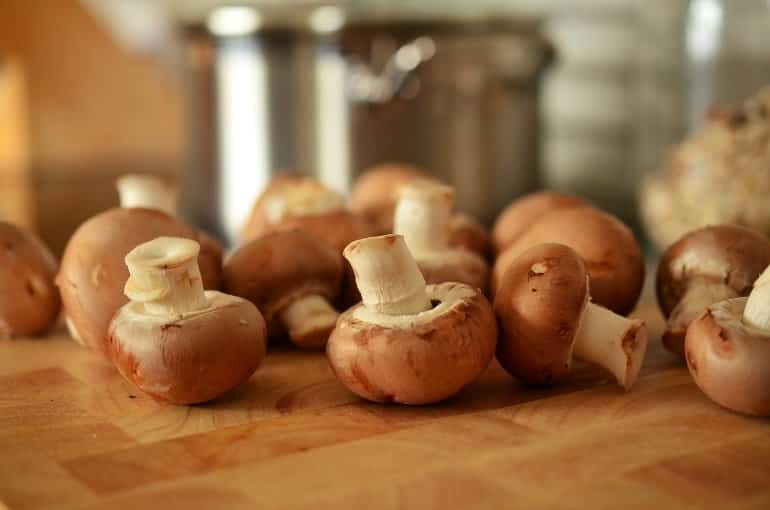Summary: Regular consumption of mushrooms may reduce a person’s risk of developing depression, a new study reports.
Source: Penn State
Mushrooms have been making headlines due to their many health advantages. Not only do they lower one’s risk of cancer and premature death, but new research led by Penn State College of Medicine also reveals that these superfoods may benefit a person’s mental health.
Penn State researchers used data on diet and mental health collected from more than 24,000 U.S. adults between 2005 and 2016. They found that people who ate mushrooms had lower odds of having depression.
According to the researchers, mushrooms contain ergothioneine, an antioxidant that may protect against cell and tissue damage in the body. Studies have shown that antioxidants help prevent several mental illnesses, such as schizophrenia, bipolar disorder and depression.
“Mushrooms are the highest dietary source of the amino acid ergothioneine — an anti-inflammatory which cannot be synthesized by humans,” said lead researcher Djibril Ba, who recently graduated from the epidemiology doctoral program at the College of Medicine. “Having high levels of this may lower the risk of oxidative stress, which could also reduce the symptoms of depression.”
White button mushrooms, which are the most commonly consumed mushroom variety in the U.S., contain potassium, which is believed to lower anxiety. In addition, certain other species of edible mushrooms, especially Hericium erinaceus, also known as Lion’s Mane, may stimulate the expression of neurotrophic factors such as nerve growth factor synthesis, which could have an impact on preventing neuropsychiatric disorders including depression.
According to the researchers, college-educated, non-Hispanic white women were more likely to eat mushrooms. The average age of surveyed participants was 45, and the majority (66%) were non-Hispanic white people. The investigators observed a significant association between mushroom consumption and lower odds of depression after accounting for socio-demographics, major risk factors, self-reported diseases, medications and other dietary factors. They said, however, that there was no clear additional benefit with relatively high mushroom intake.

“The study adds to the growing list of possible health benefits of eating mushrooms,” said Joshua Muscat, a Penn State Cancer Institute researcher and professor of public health sciences.
The team conducted a secondary analysis to see if the risk of depression could be lowered by replacing a serving of red or processed meat with a serving of mushrooms each day. However, findings show that this substitution was not associated with lower odds of depression.
Prior to this research, there have been few studies to examine the association between mushroom consumption and depression, and the majority have been clinical trials with fewer than 100 participants. The researchers said this study highlights the potential clinical and public health importance of mushroom consumption as a means of reducing depression and preventing other diseases.
The researchers noted some limitations that could be addressed in future studies. The data did not provide details on the types of mushrooms. As a result, the researchers could not determine the effects of specific types of mushrooms on depression. Food codes issued by the U.S. Department of Agriculture were used to determine mushroom intake; therefore, some entries may have been misclassified or inaccurately recorded.
John Richie and Xiang Gao from Penn State Cancer Institute; Laila Al-Shaar and Vernon Chinchilli from Penn State College of Medicine; and Robert Beelman from Penn State College of Agricultural Sciences also contributed to this research. The researchers declare no conflicts of interest or specific funding support.
About this depression and diet research news
Author: Tracy Cox
Source: Penn State
Contact: Tracy Cox – Penn State
Image: The image is in the public domain
Original Research: Closed access.
“Mushroom intake and depression: A population-based study using data from the US National Health and Nutrition Examination Survey (NHANES), 2005–2016” by Djibril Ba et al. Journal of Affective Disorders
Abstract
Mushroom intake and depression: A population-based study using data from the US National Health and Nutrition Examination Survey (NHANES), 2005–2016
Background
Mushrooms contain numerous bioactive compounds that may be associated with reduced anxiety including vitamin B12, nerve growth factor, antioxidants, and anti-inflammatory agents. We hypothesized that mushroom consumption is associated with a lower risk of depression in American adults.
Methods
Data from the National Health and Nutrition Examination Survey 2005–2016 was used. Up to two days of 24 h dietary recall were analyzed to assess mushroom intake frequency. Depression was measured using the Patient Health Questionnaire (PHQ-9, score ≥ 10). We used multivariable logistic regression models, adjusting for potential confounding factors.
Results
Among 24,699 participants (mean (SE) age: 45.5 (0.3) years), the weighted prevalence of depression was 5.9%. Mushrooms were consumed by 5.2% of participants. Compared with the lowest tertile of mushroom intake, participants in the middle tertile (median intake = 4.9 g/d, number of cases = 16) had lower odds of depression (adjusted OR = 0.31; 95% confidence interval [CI] 0.16, 0.60) while those in the highest tertile did not differ (median intake = 19.6 g/d, adjusted OR = 0.91; 95% CI: 0.47, 1.78, number of cases = 22) (P-trend = 0.42).
Limitations
Cross-sectional data and lack of information on specific types of mushrooms consumed.
Conclusion
Mushroom consumers had a lower odd of depression. However, we did not observe a dose-response relationship.






